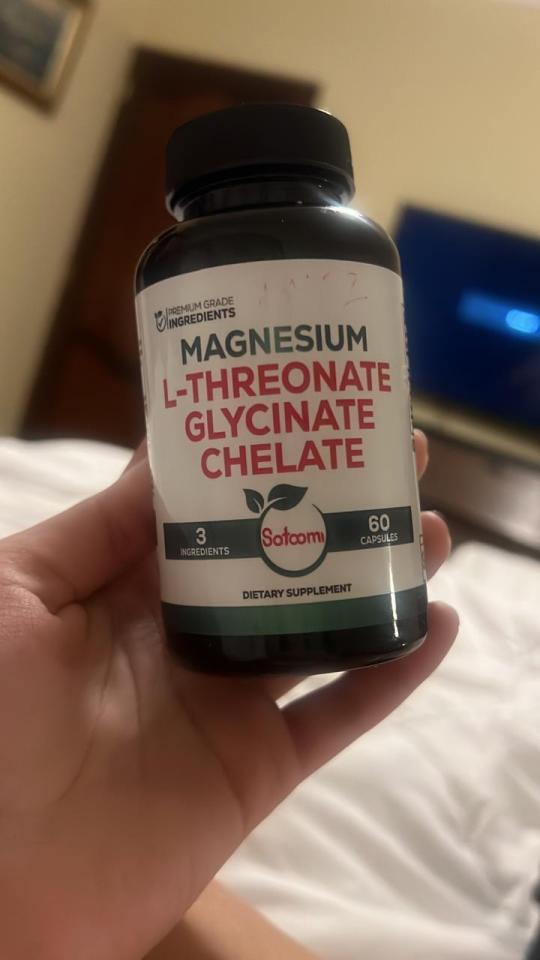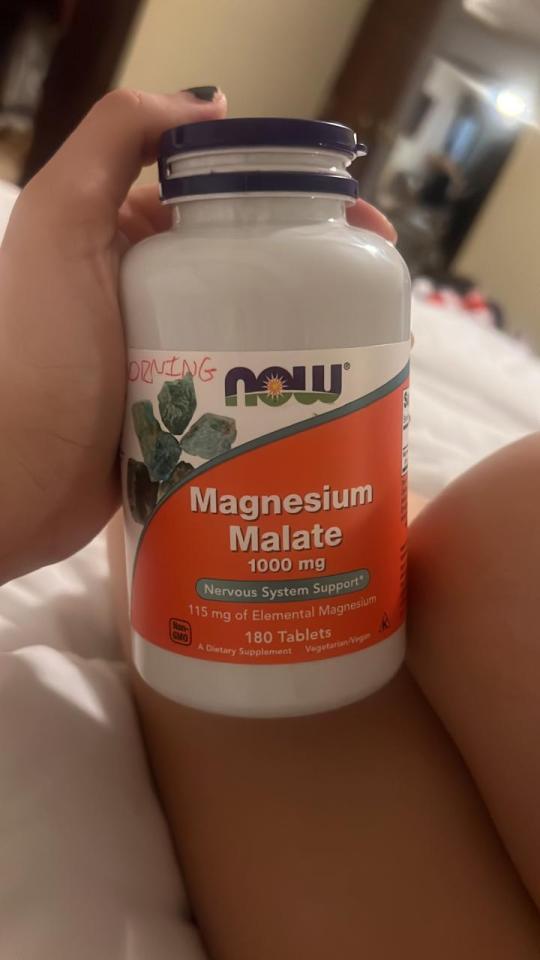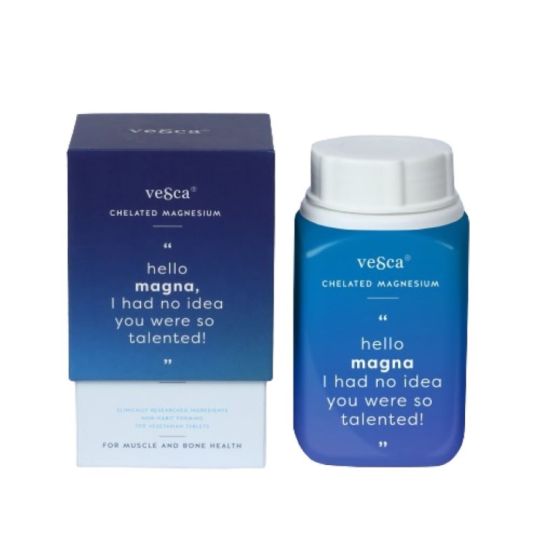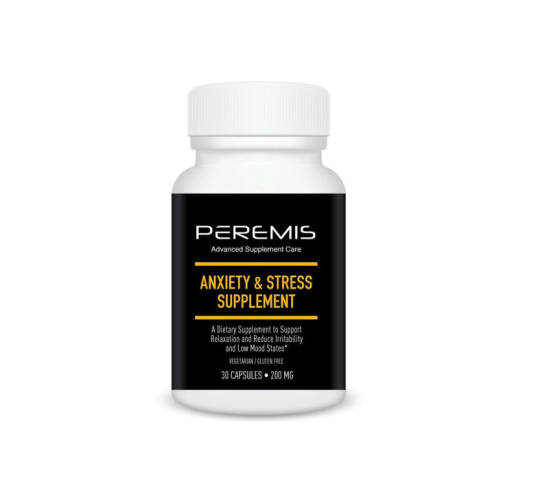#Magnesium Threonate for sleep
Explore tagged Tumblr posts
Text
Magnesium Threonate Sleep
Introducing our Magnesium Threonate Sleep supplement, designed to promote a restful night's sleep and provide numerous benefits for overall well-being. For more information, please visit https://vincosupplements.co.uk/
1 note
·
View note
Text
Hot Girl Biohacking 101: What I'm Actually Doing for Energy & Focus
by Soleau Club


If you’ve ever tried to “hack” your way into more energy, more focus, and more get-it-done vibes—you’ve probably ended up with a half-drunk matcha, six tabs open, and a mid-day crash that hits like your ex's follow request.
So let’s simplify it. Here’s what I’m really doing to feel mentally sharp, physically lit, and spiritually unbothered. This is Hot Girl Biohacking, Soleau Club-style.
My Morning Stack: Light, Hydration, and Dopamine
Before I touch my phone (okay, maybe one scroll), I:
Step outside and get sunlight on my face. Yes, even if I look like a raccoon in last night’s mascara (if I didnt take it off, because sometimes that's just what happens). 10–15 minutes of natural light = a natural circadian reset, better mood, and less brain fog.
Salt + lemon water instead of coffee. Think: adrenal support, mineral magic, and hydration before stimulation.
90s/2000s dance playlist + red light therapy. I use a red light panel while I stretch, do breathwork, or journal. Bonus: I pair it with dopamine-boosting music to wake my brain up without caffeine.
This stack alone makes me feel like I own a wellness yacht.
Nootropics, but Make It Cute
I’m not popping Adderall—I’m micro-optimizing. Here’s what I actually use:
L-Theanine + Caffeine: Smooth, jitter-free focus. Perfect for when I must be a girlboss with grace.
Lion’s Mane Mushroom: Neurogenesis, memory, mood. I take it in tincture form—gives chic apothecary vibes.
Magnesium L-Threonate (at night): For deep, healing sleep and next-level brain recovery.
Hot girls use herbs. Hot girls read ingredients. Hot girls know what their mitochondria need.
Intermittent Movement, Not Just Intermittent Fasting
I do hot girl walks, but I break them up. Biohackers call it “movement snacks,” I call it body maintenance with outfit changes.
Walk in the morning (sunlight hit + mindset reset)
Stretch mid-day (energy slump preventer)
Dance in my kitchen while cooking dinner (free serotonin)
It’s not about burning calories—it’s about staying lit.
Food That Feeds My Brain, Not Just My Aesthetic
Don’t get it twisted—I’m still eating like a model in the French Riviera. But I focus on:
Protein + fats early in the day (think smoked salmon, eggs, avocado)—so I don’t crash or crave junk
Slow carbs (quinoa, root veggies) around lunch for sustainable energy
Adaptogens in my lattes: ashwagandha, maca, or reishi depending on the vibe
And yes, I do take my collagen. Daily. Religiously.
Tech Hygiene = Mental Clarity
The girls that get it, get it: if your phone looks like a Vegas casino, your brain will too.
I keep my phone on grayscale M-F until 12pm. It’s wild how unsexy scrolling becomes when there’s no color.
Inbox zero energy—but for apps. I do weekly audits and delete anything that makes me feel chaotic.
My Focus Mode is called “Don’t Kill My Vibe.” And no, I’m not joking.
Nervous System Care Is My New Aesthetic
Listen—no biohack works if your nervous system is fried. Here’s what keeps me calm, grounded, and magnetic:
Cold showers (short, strategic, and brutal) for resilience + glow
Breathwork before calls or socializing (my go-to: box breathing 4-4-4-4)
Epsom salt baths with lavender and rose oil for divine feminine vibes
This isn’t self-care. It’s systems optimization. Soft girl era meets high performance.
Sleep Is My Most Expensive Product
I don’t care how pretty your planner is—if your sleep sucks, your brain will sabotage you by noon.
Mouth tape. Yes, we’re sealing our lips to keep that jawline snatched and oxygen flowing.
No blue light after 9PM (unless it’s coming from a candlelight filter or a hot text).
I treat sleep like skincare. Consistent, intentional, and luxurious.
Being “On” All the Time Isn’t the Flex
The real flex? Having energy that’s sustainable. Creativity that flows. Confidence that radiates from within because your body and brain are working with you—not against you.
At Soleau Club, we’re not biohacking to chase hustle culture—we’re doing it to become the most magnetic, centered, and electric versions of ourselves.
We don’t run on fumes. We run on frequency. ✨
Ready to level up your rituals? Follow @soleauclub for more tips, rituals, and behind-the-scenes of what we’re really doing to glow from the inside out.
#holistic wellness#pink pilates princess#that girl#wellness#wellness girl#green juice aesthetic#pilates aesthetic#health and wellness#self care#self development#self love#dream girl#clean girl#vanilla girl#it girl#glow up#green juice girl#pink pilates girl#pinterest girl#it girl energy#becoming that girl#glow up tips#glow up journey#level up#level up journey#leveling up#becoming her#high maintenance#leveling up tips#leveling up advice
286 notes
·
View notes
Text
Magnesium Cheat Sheet
🍃 Benefits:
Calms nervous system, lowers cortisol
Improves sleep
Regulates blood pressure
Eases constipation
Helps absorb calcium
Balances hormones & reduces PMS
⚡️Types:
Magnesium Glycinate: Best for sleep, stress & to relax
Magnesium Citrate: Digestion & relieves constipation
Magnesium Malate: Boosts energy & reduces fatigue
Magnesium L-Threonate: Brain health & memory
Magnesium Chloride: Muscle recovery
Magnesium Sulfate (Epsom Salt): Great for baths to relax muscles
290 notes
·
View notes
Text
Magnesium Cheat Sheet ⚡
💤 Glycinate – Sleep & stress relief
💩 Citrate – Digestion & constipation
⚡ Malate – Energy & fatigue
🧠 L-Threonate – Brain health & memory
💪 Chloride – Muscle recovery
🛁 Sulfate (Epsom Salt) – Relaxing baths
#beauty and wellness#health & fitness#health and wellness#health is wealth#healthy eating#healthy food#healthylifestyle#healthyliving#wellness girl#wellness routine
8 notes
·
View notes
Text
Sleep supplements that have actually worked really well for me
Before I start, the supplements I’m referring to are:
- Magnesium L-Threonate - Brand: Life Extension
- L-Theanine - Brand: now
- Apigenin - Brand: Liposomal
I’m sure there are other brands out there which are preferred, these are the ones that were accessible to me based on where I live.
——————
I just wanted to take some time to drop my personal experience/success here in case it can help anyone else who is struggling with sleep.
My whole life has been a struggle with sleep and insomnia. Both before and after I started adhd medication (concerta 54mg). I’ve been diagnosed with adhd about a year ago.
- It would take me at least 2 hours to fall asleep.
- I would wake up multiple times during the night.
- Had very vivid dreams, to the point I had to ask people if something happened in real life or if it was a dream. Mostly anxiety inducing dreams.
- I would be wide awake until sunrise.
My partner has helped me get into an evening routine since we met, which I really appreciated. But still, most of the nights I would experience insomnia, evening anxiety and mind-racing, bad dreams or interrupted sleep.
After listening to Andrew Huberman’s sleep podcast, we both tried to implement some of his tips into our night routine. But I still had sleep issues no matter what routine I tried. I.e restrict phone use prior to bed, dim all the lights to kickstart melatonin production etc.
He then decided to get me these 3 supplements that Huberman recommends for sleep because my overall mental health, sleep and anxiety levels were not great. We had both discussed it and thought it would be nice if I tried a different approach to see what happens.
I had mentioned my sleep struggles and evening anxiety to my psychiatrist multiple times, but his response would be that it’s normal because of adhd, as well as stimulant medication.
Since I started taking the supplements just under 2 months ago, they have honestly been working so well for me. I have considered that it may be placebo, but the outcome has been too good that it’s hard for me to ignore.
I don’t even know when I fall asleep anymore. I’m literally gone shortly after I get into bed — but I don’t feel drowsy prior to that. I have such deep sleep that I now wake up feeling fresh. I used to be a light sleeper, where I would wake up with any sound or movement in the room.
I even feel like it’s improved my brain fog a lot more than just concerta on its own (just a personal observation).
My constant vivid nightmares/dreams have gone away, I honestly can’t recall the last time I woke up to a bad dream. I don’t remember my dreams anymore, but I can’t tell you if i’m just not dreaming or if they’re just not as intense anymore…
No interrupted sleep since starting the supplements.
I have tried melatonin and over the counter sleep-aid, but I never really liked the side effects the morning after. Also melatonin never really helped my sleep quality.
I just wanted to mention it here in case it helps anyone else as well, because I’ve honestly been feeling soooo good and keep thanking my partner for getting me the supplements. I know I would’ve never done it myself out of procrastination.
However, these are just based on my personal experience and I’m not at all saying that everyone else will have the same experiences. I just want to give my review of some sorts, as someone who has adhd and has struggled with sleep, in case anyone has been curious about these or is looking to try something different, specifically for sleep.
I would recommend checking out Huberman’s podcasts on sleep, and adhd as well :)
I just wanted to add that I remember him mentioning that Apigenin could cause vivid dreams for some, but I personally haven’t experienced that until now.
Just make sure to drink enough water since they’re water soluble.
Other supplements that I take (in the morning) that may have some effect on this too:
- ashwagandha (short-term) - Brand: Jarrow Formulas —please do look into it and consult with a profession before trying this, since it can interact with underlying health conditions and medication. Recommended by all sources I have looked at to take it short term. I don’t take it for adhd purposes, I just decided to try it out because of stress and mood. There isn’t enough research to prove its benefits though, just a heads up.
- Algae Omega-3 - Brand: Garden of Life
- B-Complex - Brand: Nature’s Bounty
My day supplements are on and off as I forget to take them for a few days every now and then.
But I’ve tried to stay consistent with the sleep supplements in the last month and a half.
I hope this helps!
#adhd#living with adhd#adhd brain#adhd and sleep#sleep#no sleep#sleep insomnia#sleep improvement#sleep issues#sleep problems#insomia#supplements#sleep supplements#sleep support#adhd struggles
8 notes
·
View notes
Text
instagram
Buy Liposomal Lypo-Spheric Magnesium L-Threonate Canada | LivLong
Liposomal Lypo-Spheric Magnesium L-Threonate is a high-quality supplement designed to support brain and cognitive function. Using advanced liposomal technology, this product enhances magnesium absorption and bioavailability. Unlike traditional magnesium supplements, the liposomal form allows for better absorption, ensuring that the magnesium reaches the brain more effectively.
Magnesium L-Threonate is specifically formulated to promote mental clarity, reduce stress, and improve sleep quality. It also supports overall nervous system health. Ideal for those looking to optimize brain health, this supplement provides a more efficient delivery system, maximizing the benefits of magnesium supplementation.
Browse Other Lypo-Spheric Products Here:
#Magnesium Threonate#Lypo Spheric Magnesium#Lypospheric Magnesium#Magnesium L Threonate Canada#Magnesium Threonate Canada#Magnesium Supplements#Instagram
0 notes
Text
Unlocking Restful Sleep and Reducing Anxiety: Natural Methods to Relax and Rejuvenate

In our fast-paced world, anxiety and sleep disturbances have become common challenges. The good news is that there are natural methods to help alleviate anxiety and promote restful sleep. Here, we explore ten effective strategies that can help you unwind, relax, and achieve a rejuvenating night’s sleep.
1. Reducing Screen Time and Using Blue Light Glasses
The pervasive use of screens can disrupt our sleep patterns. The blue light emitted by smartphones, tablets, and computers interferes with the production of melatonin, the hormone responsible for regulating sleep. Reducing screen time, especially before bed, can significantly improve sleep quality. Additionally, using blue light glasses can filter out the harmful blue light, allowing for better melatonin production and more restful sleep.
2. Neurocalm: Magnesium L-Threonate
Magnesium L-Threonate, found in Neurocalm, is a supplement known for its ability to calm the brain. This form of magnesium crosses the blood-brain barrier, enhancing brain function and promoting relaxation. It helps improve mood, reduce stress, and support better sleep by calming the nervous system.
3. Establishing a Routine and Maintaining Circadian Rhythm
Our bodies thrive on routine. Establishing a consistent sleep schedule helps regulate the body’s internal clock, known as the circadian rhythm. Going to bed and waking up at the same time every day can improve sleep quality and make it easier to fall asleep and wake up naturally.
4. Cool and Dark Room Environment
Creating an optimal sleep environment is crucial. A cool room, ideally between 60-67 degrees Fahrenheit, can promote better sleep. Additionally, ensuring the room is dark by using blackout curtains or an eye mask can further enhance sleep quality by signaling to your body that it is time to rest.
5. Gaba-Sero: Natural GABA and Serotonin Supplement
GABA (gamma-aminobutyric acid) and serotonin are neurotransmitters that play a vital role in regulating mood and relaxation. Gaba-Sero, a natural supplement, helps increase levels of these neurotransmitters, promoting relaxation and reducing anxiety. This, in turn, supports a more restful night’s sleep.
6. Dopamine Active: Boosting Dopamine Levels Naturally
Dopamine is a neurotransmitter associated with mood, motivation, and energy. Dopamine Active is a natural supplement that helps enhance dopamine levels in the brain, improving mood and reducing anxiety. By supporting a balanced mood, it can contribute to better sleep quality.
7. Reducing Caffeine and Other Stimulants
Caffeine and other stimulants can interfere with sleep by increasing alertness and delaying the onset of sleep. Reducing or eliminating caffeine intake, especially in the afternoon and evening, can help promote better sleep. Opt for herbal teas or other non-caffeinated beverages to unwind in the evening.
8. Chamomile Tea
Chamomile tea is a popular natural remedy for anxiety and sleep. It contains apigenin, an antioxidant that binds to certain receptors in the brain, promoting relaxation and reducing insomnia. Enjoying a warm cup of chamomile tea before bed can help calm the mind and prepare the body for restful sleep.
9. Box Breathing and Mindfulness
Box breathing is a simple yet effective technique to reduce anxiety and promote relaxation. It involves inhaling for four seconds, holding the breath for four seconds, exhaling for four seconds, and holding again for four seconds. Practicing mindfulness and meditation can also help calm the mind and prepare the body for sleep.
10. Aromatherapy with Essential Oils
Aromatherapy can be a powerful tool for relaxation. Essential oils like lavender, bergamot, and ylang-ylang are known for their calming properties. Diffusing these oils in your bedroom or adding a few drops to your pillow can create a soothing atmosphere conducive to sleep.
Bonus Tip: Eating a Nutrient-Dense Diet
Blood sugar swings, dehydration, and chemicals in processed foods can significantly impact how you think and feel. A balanced diet rich in essential nutrients can have a profound impact on sleep quality and anxiety levels. Foods high in magnesium, calcium, and B vitamins support the nervous system and promote relaxation.
Omega-3 fatty acids, found in fish, flaxseeds, and walnuts, are also known to enhance brain health and reduce anxiety. Incorporating a variety of fruits, vegetables, lean proteins, and healthy fats can help stabilize mood and improve overall sleep quality.
Conclusion
Incorporating these natural methods into your daily routine can significantly reduce anxiety and improve sleep quality. By making small changes and adopting healthy habits, you can create a peaceful and restorative sleep environment, allowing you to wake up refreshed and ready to take on the day. Remember, consistency is key, and over time, these practices can lead to long-lasting improvements in your overall well-being.
As your chiropractor in Macomb, Mi, we want to help you take control of your health and learn what causes you to feel unhealthy. NuVision Health Center is committed to natural techniques that have been studied and clinically proven to work. We have numerous programs to help you get started today and are here to help in any way we can. You can become a total wellness warrior, and we can show you how! Please contact us today to find out which program is best for your unique health goals.
You can also join us on social media and sign up to get exclusive email discounts. We have helped thousands of patients and are ready to help you transform your health!
#chiropractor in macomb mi#affordable chiropractor in macomb mi#chiropractic care macomb mi#top ranked chiropractor in macomb mi#restful sleep#reducing anxiety
0 notes
Text
Why Magnesium L-Threonate Complex Capsules Are the Best Supplements for Sleep and Relaxation
0 notes
Text


As recommended by my Doctors, I tried these magnesium types (L-threonate, glycinate and chelate) have helped me with my mood swings, sleep habits, constipation, brain fog). Magnesium malate has helped me with Fibromyalgia easing the pain throughout the day. Find these on my amazon lists and other supplements (feel free to ask) <3
1 note
·
View note
Text
How Magnesium Threonate Enhances Sleep Quality
Why Magnesium Threonate is Beneficial for Sleep Introduction In the quest for better sleep, many people turn to supplements, and one that has gained significant attention is magnesium threonate. This unique form of magnesium not only supports various bodily functions but is also particularly effective in promoting restful sleep. Here’s why magnesium threonate is a valuable ally for improving…
0 notes
Link
Magnesium is an essential mineral that plays a crucial role in numerous bodily functions, including sleep regulation and cognitive health. Two popular forms of magnesium supplements, magnesium glycinate and magnesium L-threonate, have gained attentio...
1 note
·
View note
Text
Boost Your Health with Magnesium L-Threonate
Discover the health benefits of Magnesium L-Threonate, a unique form of magnesium known for its superior absorption into the brain. This powerful supplement supports cognitive functions, enhances memory, and may reduce the risk of neurodegenerative diseases. Additionally, it can improve sleep quality, alleviate anxiety, and promote overall brain health. Unlike other forms of magnesium, Magnesium L-Threonate is specifically designed to cross the blood-brain barrier, making it an excellent choice for those looking to enhance their mental clarity and cognitive abilities.
0 notes
Text
The Importance of Chelated Magnesium for Health and Well-Being
Chelated magnesium is a form of magnesium with an organic substance, often an amino acid. In contrast to other forms of magnesium, such as magnesium oxide or magnesium citrate, this binding, often referred to as chelation, improves the body's capacity to absorb and use magnesium.
Magnesium is an essential element that the body uses for over 300 enzymatic functions, such as energy synthesis, nerve interaction, and muscle function. When it comes to treating magnesium deficiency and enhancing general health, chelated magnesium is very useful.
Types of Chelated Magnesium
Magnesium Glycinate: Magnesium is related to glycine, an amino acid. This form is renowned for having no laxative impact and a high absorption.
Magnesium Malate: This supplement combines magnesium with malic acid, which is naturally present in fruits, and has been demonstrated to improve energy production and alleviate muscular soreness.
Magnesium Threonate: This kind of substance is associated with chronic acidity and is distinguished by its capacity to penetrate the blood-brain barrier, which may facilitate cognitive processes and improve memory.

Benefits of Chelated Magnesium
Improved Absorption: Chelated magnesium supplements increase magnesium's bioavailability, which means it is more easily absorbed and used by the body.
Supports Muscle and Nerve Function: Magnesium is vital for muscle relaxation and nerve signal transmission, helping prevent cramps and contractions.
Enhances Sleep Quality: Magnesium helps regulate neurotransmitters that are necessary for sleep.
Bone Health: Chelated magnesium supplements help regulate neurotransmitters that are necessary for sleep.
Cardiovascular Health: Magnesium may lower the risk of hypertension and cardiovascular disorders while also assisting in the regulation of cardiac rhythm.
Mental Health Support: Anxiety and depressive symptoms can be reduced with the use of magnesium supplements, especially chelated versions.
Uses of Chelated Magnesium
Managing Deficiencies
Supporting Exercise Performance
Improving Cognitive Function
Reducing Migraine Frequency
Dosage and Safety
Depending on your age and life stage, various chelated magnesium supplements are advised daily. Generally, it is between 400mg and 420mg for adult men and between 310mg and 320mg for women.
Conclusion
Chelated magnesium supplements are an extremely absorbable and efficient solution to manage magnesium deficiency and improve general health. Chelated magnesium's advantages are numerous, extending from better bone and muscular health to increased mental clarity and cognitive performance.
#chelated magnesium#magnesium#magnesium oxide#magnesium supplement#magnesium tablets#Chelated magnesium tablets#vesca
1 note
·
View note
Text
0 notes
Photo

Try👇 Magnesium Citrate for digestion Magnesium Glycinate for calm and sleep Magnesium Malate for energy Magnesium Taurate for heart health Magnesium L-Threonate for brain power Watch our FREE mini-masterclass below. 👇 https://lnkd.in/ghu78Unh
0 notes
Text
Discover the Power of Stress-Reducing and Anxiety Relief Supplements Online
In today's fast-paced world, stress and anxiety have become common companions in our daily lives. Whether it's the demands of work, personal relationships, or unforeseen challenges, many of us grapple with these overwhelming emotions. Fortunately, the world of supplements offers a range of natural solutions to help you find relief and regain control of your mental well-being. In this article, we will explore stress-reducing and anxiety relief supplements online that are available online, helping you make informed choices for a more relaxed and peaceful life.

1. Ashwagandha: The Adaptogen for Stress Relief
Ashwagandha, also known as Withania somnifera, is a powerful adaptogen with a long history of use in traditional Ayurvedic medicine. It has gained immense popularity for its ability to combat stress and anxiety. Ashwagandha supplements are readily available online and can help regulate the body's stress response, reduce cortisol levels, and promote a sense of calm.
2. Rhodiola Rosea: Boost Your Mood and Energy
Rhodiola rosea is another adaptogenic herb that has gained recognition for its stress-reducing benefits. It helps increase the body's resistance to stress and fatigue, while also enhancing mood and energy levels. By reducing the physical and emotional toll of stress, Rhodiola supplements can be a valuable addition to your daily routine.
3. L-Theanine: Nature's Relaxant
L-Theanine is a naturally occurring compound found in tea leaves, particularly in green tea. It is known for its calming and anxiety-reducing properties. L-Theanine supplements are a popular choice for individuals looking to reduce stress and anxiety without sedation. This amino acid promotes relaxation while enhancing cognitive function.
4. Magnesium: The Calming Mineral
Magnesium is a vital mineral that plays a crucial role in relaxation and stress reducing supplements Many people are deficient in magnesium, which can lead to increased stress and anxiety. Online magnesium supplements, whether in the form of magnesium citrate, magnesium glycinate, or magnesium threonate, can help alleviate these symptoms and promote a sense of tranquility.
5. CBD Oil: A Natural Approach to Anxiety
Cannabidiol (CBD) is a non-psychoactive compound derived from the cannabis plant. CBD oil has gained popularity for its potential to reduce anxiety and stress. It interacts with the endocannabinoid system in the body, helping to regulate mood, reduce anxiety, and promote a sense of calm. High-quality CBD oil can be found from reputable sources online.
6. Valerian Root: A Natural Sedative
Valerian root has been used for centuries as a natural sedative and sleep aid. It can be particularly helpful for individuals experiencing anxiety that interferes with their sleep patterns. Valerian root supplements are available online in various forms, such as capsules, teas, and tinctures.
7. Ginkgo Biloba: Improve Cognitive Function and Reduce Stress
Ginkgo biloba is a herbal supplement that may help reduce stress and anxiety while enhancing cognitive function. It improves blood circulation to the brain and has been linked to better memory and mental clarity.
When considering stress-reducing and anxiety relief supplements, it's essential to consult with a healthcare professional to determine the most suitable option for your specific needs. Furthermore, ensure you purchase supplements from reputable online sources to guarantee quality and safety.
In conclusion, the modern world is filled with various stressors, and it's crucial to take proactive steps to manage and reduce stress and anxiety. These natural supplements offer promising alternatives to traditional treatments, and they are conveniently available online. However, always remember that supplements are not a replacement for a healthy lifestyle, including a balanced diet, regular exercise, and good sleep habits. Integrating these supplements with a holistic approach to well-being can be your key to a more serene and anxiety-free life.
0 notes